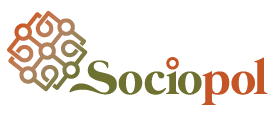Incomplete information, raw data, or even anecdotes can serve as reminders that your organization could benefit from studies designed to meet the needs of your situation and your strategic issues. We can help you by co-constructing a study framework or even a knowledge mobilization strategy with you. Initiatives like these help to better understand your environment so that you can specify your objectives and achieve them more effectively.
Knowledge development initiatives may take the following forms:
- Conceptual study or transformative analysis
- This type of study explores ideas or analyzes potential project premises and large-scale initiatives. It can also simultaneously offer a better understanding of an existing environment and explore innovative ideas using collaboration and participation.
- Feasibility study
- This type of study is more precise than a conceptual study and helps to determine the feasibility of an initiative. Multiple variables are considered in order to recreate the ecology of the initiative. Different scenarios may also be explored.
- Outcomes and impact study
- This type of study may assess the outcomes achieved or the performance of an initiative. It could also have a larger scope and aim to measure medium- or long-term program impacts.
Rigorous methods
Methodologies may vary considerably from one project to the next. It is standard practice to adopt mixed methods, that is, to combine two or three techniques to get the best results. Ultimately, for each project, we strive to ensure that the collected data “speaks” by producing a rigorous analysis and high-quality reports.
The following are some examples of research methods that we use:
- Literature review
- Policy analysis
- Individual interviews
- Online surveys
- Discussion groups
- Event analysis
- Participant observation
- Collection and interpretation of quantitative data


